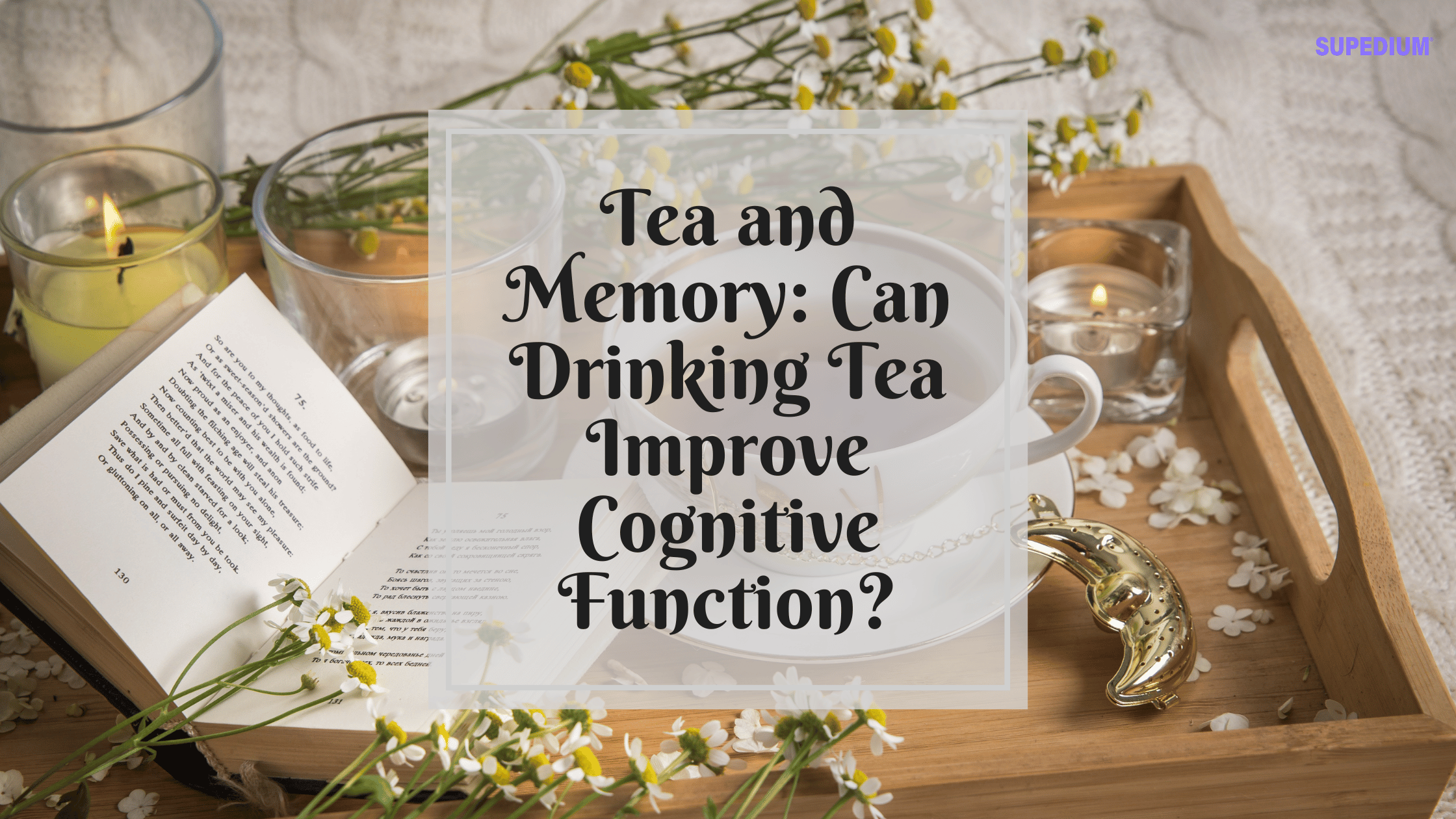Table of Contents
![]()
I. Introduction
Cognitive function encompasses a range of mental processes, including memory, attention, and reasoning. As we age, maintaining cognitive health becomes increasingly important, leading many to explore dietary choices that may enhance brain function. Among these, tea has emerged as a popular candidate, touted for its potential cognitive benefits. This article delves into the relationship between tea consumption and cognitive function, examining various types of tea, their mechanisms of action, supporting scientific research, and practical applications for incorporating tea into a brain-healthy lifestyle.
II. Types of Tea
A. Green Tea
Green tea, one of the most studied varieties, is rich in catechins—powerful antioxidants known for their health benefits. These compounds have been linked to improved brain function and reduced risk of cognitive decline. L-theanine, an amino acid found in green tea, is also credited with promoting relaxation and enhancing attention.
B. Black Tea
Black tea undergoes a different processing method than green tea, leading to a unique profile of antioxidants, including theaflavins and thearubigins. Research suggests that these compounds may support cognitive health by improving blood flow to the brain and enhancing focus and alertness.
C. Herbal Teas
Herbal teas encompass a wide variety of plants, each with unique properties. For instance, ginseng is known for its potential to enhance mental performance, while rosemary has been associated with improved memory. Although not true teas, these herbal infusions may offer cognitive benefits and should not be overlooked.
D. Comparison of Tea Types
While all types of tea offer potential cognitive benefits, green and black teas are the most studied in relation to memory enhancement. Herbal teas may provide additional support, but their effects vary based on the specific ingredients used.
III. Mechanisms of Action
A. Antioxidant Properties
One of the key mechanisms by which tea may enhance cognitive function is its antioxidant properties. The polyphenols in tea help combat oxidative stress and inflammation, both of which can adversely affect brain health. By reducing these harmful processes, tea may contribute to better cognitive performance.
B. Neuroprotective Effects
Tea consumption has been associated with increased levels of brain-derived neurotrophic factor (BDNF), a protein crucial for the growth and survival of neurons. Higher BDNF levels are linked to improved memory and learning abilities. Additionally, tea may help protect against neurodegenerative diseases, such as Alzheimer’s and Parkinson’s.
C. Effects on Neurotransmitters
The combination of L-theanine and caffeine in tea can positively influence neurotransmitter activity. L-theanine promotes relaxation without drowsiness, while caffeine enhances alertness and focus. This synergy may lead to improved cognitive performance and a better overall mood.
IV. Scientific Research and Evidence
A. Overview of Key Studies
Numerous studies have explored the cognitive benefits of tea consumption. Epidemiological research often shows a positive correlation between tea drinking and better cognitive health among older adults. Clinical trials have also examined the effects of specific compounds in tea on memory and attention.
B. Summary of Findings
While many studies indicate that regular tea consumption is linked to improved memory and cognitive function, results can be mixed. Some research shows significant benefits, while others highlight the need for further investigation. Overall, the evidence supports the idea that tea can play a role in enhancing cognitive abilities.
V. Tea Consumption and Lifestyle Factors
A. Influence of Overall Diet
While tea may offer cognitive benefits, it is essential to consider its role within the broader context of diet. A balanced diet rich in fruits, vegetables, and whole grains is vital for overall brain health. Tea should complement, not replace, other nutritious foods.
B. Role of Physical Activity
Regular physical activity is another crucial factor in maintaining cognitive function. Studies suggest that combining exercise with tea consumption may amplify cognitive benefits, as both promote blood flow to the brain and encourage neurogenesis.
C. Importance of Hydration
Staying hydrated is vital for cognitive function. Dehydration can impair attention and memory. Drinking tea can contribute to overall fluid intake, but it’s essential to balance it with other sources of hydration.
VI. Considerations and Limitations
A. Individual Differences
Responses to tea can vary significantly among individuals. Factors such as genetics and metabolism play a crucial role in how tea compounds affect cognitive function. Older adults or those with certain health conditions may experience different benefits than younger, healthier individuals.
B. Potential Side Effects
While moderate tea consumption is generally safe, some individuals may experience side effects, particularly from caffeine. Those sensitive to caffeine might experience jitteriness, anxiety, or disrupted sleep patterns. It’s essential to consider personal tolerance levels.
C. Need for Moderation
As with any dietary component, moderation is key. Excessive tea consumption can lead to negative side effects, so it’s recommended to limit intake to a moderate amount—typically around three to five cups per day, depending on individual sensitivity to caffeine.
VII. Practical Applications
A. Incorporating Tea into Daily Routine
To reap the cognitive benefits of tea, consider incorporating a variety of teas into your daily routine. Green and black teas can be enjoyed in the morning for a gentle energy boost, while herbal teas may be beneficial in the evening for relaxation.
B. Combining Tea with Other Brain-Healthy Practices
In addition to drinking tea, engaging in cognitive exercises such as puzzles, reading, or learning new skills can further enhance brain health. Combining these activities with regular tea consumption can create a holistic approach to cognitive wellness.
VIII. Conclusion
In conclusion, drinking tea may offer several potential benefits for cognitive function and memory. The evidence suggests that the antioxidants, neuroprotective properties, and mood-enhancing effects of tea can contribute positively to brain health. However, individual responses can vary, and tea should be consumed as part of a balanced diet and healthy lifestyle. As research continues to unfold, tea remains a promising, enjoyable addition to strategies aimed at maintaining cognitive vitality.
Share This





Be the first to comment